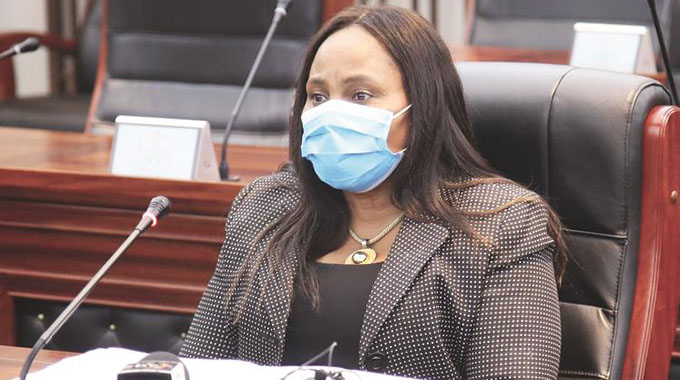Thumbs up for national e-learning strategy

Elita Chikwati
Senior Reporter
This year 1 500 schools will be connected to the broadband, with 434 first having to be connected to the electricity grid, while 150 000 computers will be assembled at the new Msasa factory in Harare to equip the schools. Mobile applications will be ready within 45 days as implementation of the national e-learning strategy for schools in Zimbabwe moves into high gear.
Cabinet yesterday approved the fast-track implementation of the first phase of the e-learning strategy, planned to run over the next five years, to ensure all areas, including rural Zimbabwe, can move quickly into the modern age with no one left behind.
At the same time Cabinet has now given thumbs up to extending the national Covid-19 vaccination programme, under which 34 400 people have already had their jabs, into the second phase with extra vaccine supplies on their way.
This phase, which is largely directed at school teachers and university and college lecturers, to ensure this critical group is properly protected.
Speaking after the Cabinet meeting, Information, Publicity and Broadcasting Services Minister Monica Mutsvangwa outlined the expected progress this year of implementing the e-learning.
Besides the 1 500 schools being connected and the 434 being electrified, and the new factory going into full production of 150 000 computers a year, instructional designers will have developed e-learning content by June and 3 000 teachers will be trained in the basic digital skills by December.
The e-learning is coming through audios, videos and text.
“The success of the online learning initiative for rural communities will be premised on the expansion and upgrading of the broadband infrastructure, the acquisition of standardised gadgets for schools, the development and delivery of content, a federated content hosting approach to optimise and cut down on the cost of access; the importing of basic digital skills to educators (capacity building) and the availability of resources for the roll-out of the programme.
“The Postal and Telecommunications Regulatory Authority of Zimbabwe will continue to provide gadgets to schools, particularly in the rural areas, under the Connect a School-Connect a Community Programme formulated by the International Telecommunications Union.
TelOne, NetOne and the Zimbabwe Academic and Research Network (ZARNET) will also be capacitated to play their part in providing connectivity to schools and tertiary institutions,” she said.
ZBC, the national broadcaster, would also provide dedicated radio and television channels for e-learning.
“ZARNET will expedite its project to provide an optic fibre strand for the education sector. The National ICT Device factory in Msasa, with capacity to manufacture 150 000 units per annum, will be capacitated for the assembling of the requisite devices for e-learning,” she said.
The national e-learning strategy for schools in Zimbabwe is a joint initiative of the Ministry of Information Communication Technology, Postal and Courier Services and the Ministry of Primary and Secondary Education.
It is a major component of the SMART Zimbabwe 2030 Masterplan, which is programme 15 in the Cabinet-approved Government priority programmes on innovation, science and technology development for 2019-2030.
Under the now imminent move to phase two of vaccinations, teachers will soon be reaching the front of the queue.
Progress had been made in receiving the second donation of doses of the Sinopharm vaccine from China and the donations of 75 000 doses of the inactivated Covaxin from India and 20 000 doses of Sputnik-V vaccine from Russia.
Emergency use authorisation has been issued for these vaccines by the Medicines Control Authority of Zimbabwe.
Employers can participate but “all those intending to procure vaccines for their employees must procure only registered vaccines in Zimbabwe. The Ministry of Finance and Economic Development will be purchasing the vaccines on behalf of the Government of Zimbabwe,” she said.
Minister Mutsvangwa said organisations and individuals willing to donate towards vaccine procurement would do so to the President through the National Vaccine Procurement Fund which will procure on behalf of the organisations guided by the national procurement guidelines.
“To ensure safety and efficacy, vaccines shall be kept at the central vaccines stores under the Ministry of Health and Child Care and the national cold chain guidelines shall apply.
“Only trained and registered health professionals are authorised to administer vaccines, and only the Ministry of Health and Child Care is responsible for issuing Covid-19 vaccination certificates,” she said.
Cabinet has also resolved that opening of some public places attracting multitudes, such as casinos will be deferred until the consequences of the recent relaxation of lockdown measures have been fully assessed.










Comments